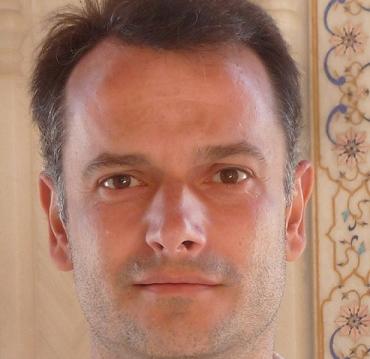
Asier Altuna García de Salazar, Universidad de Deusto
Asier Altuna es Vicedecano de Internacionalización, estudios de posgrado y formación continua en la Facultad de Humanidades y Ciencias Sociales de la Universidad de Deusto. Ha sido presidente de AEDEI (Asociación Española de Estudios Irlandeses). Obtuvo una beca posdoctoral de investigación del Gobierno Vasco que desarrolló en el Centre for Irish Studies NUI Galway, Ireland y en la Universidad de Deusto del 2003 al 2008. Ha sido profesor invitado en UNAM, Mexico, Pune, India, Osaka, Japan, Sultan Qaboos & Nizwa, Oman, KIMEP, Kazakhstan and Xiamen, China. Es experto TUNING europeo en el área de filología inglesa. Ha estado involucrado en el proyecto europeo SPEAQ para la calidad y el desarrollo, así como en varios proyectos del Ministerio de Economía y Competitividad sobre la familia disfuncional irlandesa y sobre las prácticas culturales del silencio y la vulnerabilidad en la ficción contemporánea irlandesa. Ha publicado sobre la literatura decimonónica española e irlandesa, escritura irlandesa y sobre el multiculturalismo y la transculturalidad irlandesas.
https://scholar.google.es/citations?user=PZziEcMAAAAJ&hl=es&oi=ao
Silences that speak in Donal Ryan’s Post-Millennial Fiction
Donal Ryan’s novels approach the concept of silence as a referential motif. Depicting many of the aspects of contemporary Ireland, especially those of the relationship between community and the individual, Ryan’s writing offers a nuanced representation of silence within post-millennial Irish literature. Drawing on the theoretical tenets of silence and the more extreme unspoken and unsayable, in the work of Macherey, Bourdieu, Steiner, Franke and Foucault, among others, this talk applies some of these tenets to Ryan’s writing to determine the qualitative nature of the references to silence, the unspoken and the unsayable and the importance of their presence in the development of the thematic contents of his fiction. This talk shows that Ryan’s narratives identify silence as a tool of social control that exerts its power over the situation of those individuals silenced, but which also extends to the community as a whole. As I will discuss, silence becomes a powerful signifier in Ryan’s narratives. These deal with a large variety of topics in conflicting social situations (such as recent immigration, multicultural realities, racism, inequalities of the Celtic Tiger and its aftermath, ghost estates, illegal activities, lesbianism in Ireland in the 1970s, suicidal attempts, prejudice against the Irish traveller community, dysfunctional families, abortion, crime, corruption, minor traumas, illegitimate children and single motherhood). Silence functions as a subtle reminder of many social, economic, cultural and religious discourses in today’s Ireland, which show the containment and silent acceptance of more extreme expressions of the unspoken and the unsayable. Ryan’s fiction addresses various inconvenient and hidden truths, which remain unresolved and constitute pending issues in Ireland today.

Frank Boers, University of Western Ontario
Frank Boers es catedrático de Lingüística Aplicada y TESOL en la Universidad de Western Ontario, Canadá. Creció en Amberes, Bélgica, donde obtuvo su doctorado en Lingüística (con una tesis en el campo de la lexicología). También obtuvo un certificado de enseñanza de idiomas y enseñó el Inglés como lengua extranjera durante unos 20 años en varias centros de Educación Primaria y Secundaria, y en universidades en Bélgica. Desde 2000, Frank ha publicado principalmente sobre temas relacionadas con la adquisición de segundas lenguas en contextos de instrucción. En 2010, se mudó a Nueva Zelanda, donde enseñó en los programas de posgrado de Lingüística Aplicada y TESOL de la Universidad Victoria de Wellington durante 8 años. También fue coeditor de la revista Language Teaching Research durante un tiempo en ese período. Su libro más reciente es Evaluating second language vocabulary and grammar instruction: A synthesis of the research on teaching words, phrases, and patterns (Routledge, 2021).
https://scholar.google.co.nz/citations?user=bT_pR6wAAAAJ&hl=en
Instructional approaches to multiword expressions in a second language: A critical review
The past two decades have witnessed a proliferation of studies on multiword expressions (such as collocations, idioms, and phrasal verbs), including research on the effectiveness of diverse interventions intended to help L2 learners acquire such items. Such interventions range from the modification of texts (e.g., incorporating multiple instances of the same expressions and making them more noticeable through typographic means) to decontextualized practice (e.g., the use of exercises frequently found in mainstream textbooks) and the use of mnemonic strategies.
In this talk I will review a broad collection of such ‘treatment’ studies and will try to adopt a practitioner’s perspective in doing so. It will be argued, for example, that some of the approaches that have been put to the test in empirical research are unlikely to be tried by language teachers owing to the substantial investment of time and effort they require. A recurring theme in the talk will be the distinction between the statistical significance and the pedagogical significance of the research findings. While it is of course useful to detect whether one treatment condition leads to more learning than another according to inferential statistics, it is also worth taking a closer look at the descriptive statistics to evaluate how encouraging the learning gains really are under the more successful treatment. I will then highlight research findings that can directly inform pedagogy and textbook design in relatively straightforward ways. This includes quick and easy steps for making certain multiword expressions memorable, and the use of learning procedures that avoid trial and error. The talk will conclude with suggestions for further work in this area.

Angela de Bruin, University of York
Angela de Bruin es profesora ayudante doctora en el Departamento de Psicología de la Universidad de York, Reino Unido. Realizó su doctorado en la Universidad de Edimburgo (2013-2016) y luego trabajó en el Basque Centre on Cognition, Brain and Language como investigadora postdoctoral y becaria Marie Curie (San Sebastián, 2016-2019). Sus principales intereses de investigación son el bilingüismo, la producción del lenguaje, el envejecimiento cognitivo y el control ejecutivo.
https://scholar.google.co.nz/citations?hl=en&user=JlVFSNUAAAAJ
